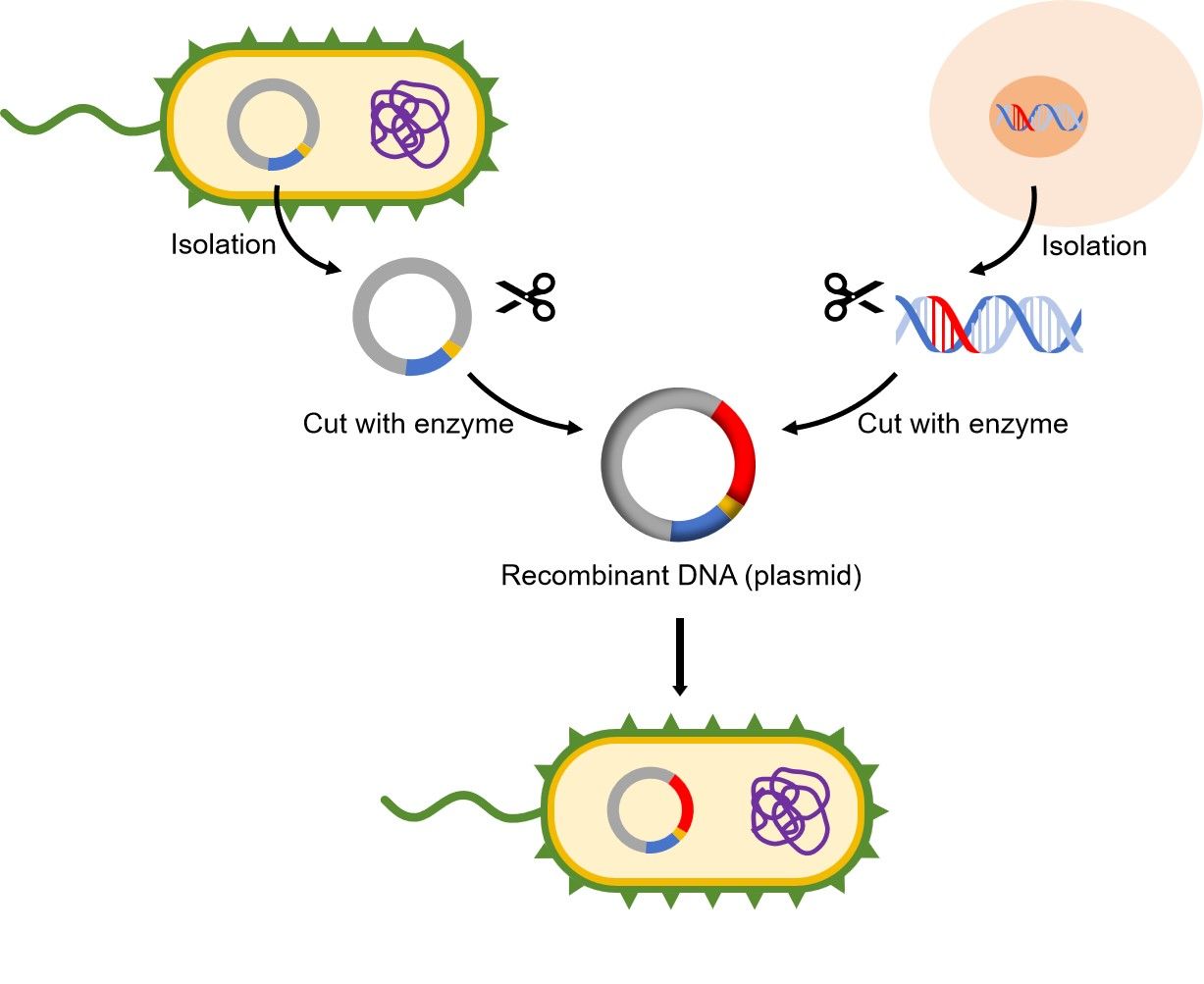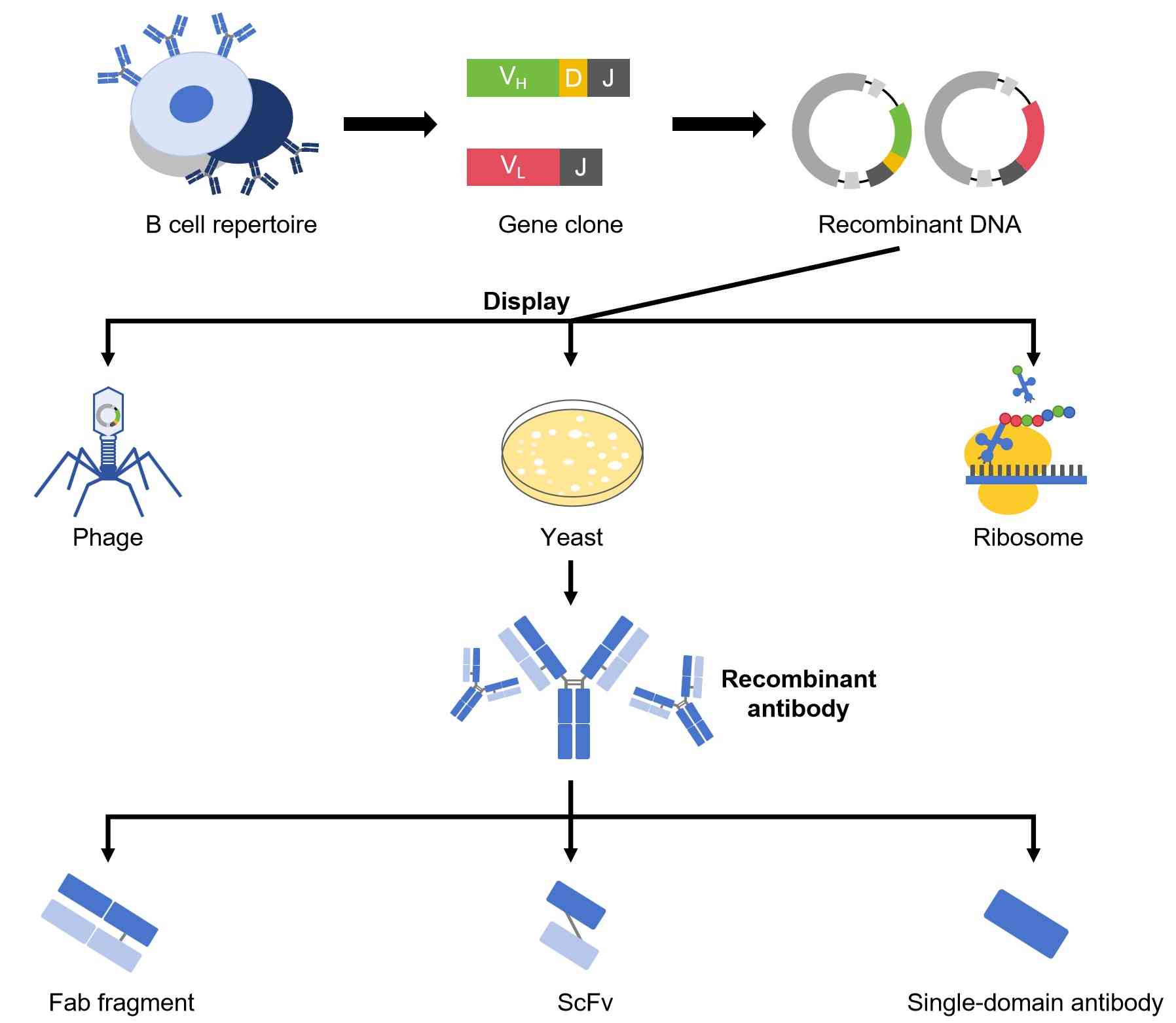Gene cloning is the first and critical step during the production of recombinant antibodies (rAbs). As a pioneer and leader in gene synthesis technology, Creative Biolabs has completed a large number of gene synthesis and cloning projects for clients around the world. Thus, we have the expertise to help you achieve your gene synthesis needs for your antibody production. Our sophisticated equipment, advanced technologies and highly experienced staffs are available to provide you a full spectrum of high quality specialty gene cloning service.
Gene cloning (also known as molecular cloning) is the process of isolating a DNA sequence of interest to create a recombinant DNA and make multiple copies of it. Thus, the identical copies are clones. Recombinant DNA is a form of artificial DNA developed by Stanley Cohen and Herbert Boyer in 1973. Recombinant DNA is engineered combination that combines two or more DNA strands together cooperating with DNA sequences technology. In detail, selected DNA is inserted into an existing organismal genome, such as a bacterial plasmid DNA, or some other sort of vector. Subsequently, the recombinant DNA can be inserted into another cell, such as a bacterial cell to amplify and possibly produce the interest protein.
 Fig.1 The basic steps of gene cloning.
Fig.1 The basic steps of gene cloning.
Gene cloning of an antibody is carried out with restriction enzyme digestion, followed by ligation and transformation or transfection. Generally, gene cloning of antibody DNA fragment essentially involves four steps: isolation of the DNA of antibody, ligation, transfection (or transformation), and a screening/selection procedure.
Firstly, the DNA fragment to be cloned should be isolated. This DNA of antibody is frequently isolated by the polymerase chain reaction (PCR) or restriction enzyme digestion. The restriction enzyme is an enzyme that cuts double-stranded DNA at a specific sequence. The enzyme can make two incisions, one through each strand of the double helix and won’t damage the nitrogenous bases. The restriction endonucleases discovered by Daniel Nathans and Hamilton Smith were awarded to the 1978 Nobel Prize in Medicine.
Once the DNA of the antibody is isolated, and the next step is to insert the amplified fragment into a vector to produce the recombinant DNA molecule. This process is called ligation via a DNA ligase that is an enzyme can attach together strands of DNA with double-strand breaks.
After the ligation procedure, the recombinant DNA is formed and then placed into a host cell, such as the bacterial cell. This process is called transfection or transformation. However, many of these host cells may not contain a plasmid with the target DNA due to the transfection process is not usually 100% successful. Thus, the selection is an essential step to obtain positive host cells with the DNA of interest. Usually, the process can be achieved easily via the selectable markers of plasmids/vectors with different antibiotic resistance. Besides, the above selection procedure also does not guarantee that the DNA of insert is present in the cells. Further analysis of the resulting colonies is needed to confirm a successful clone by a PCR process or restriction fragment analysis, both of which then need to be confirmed by gel electrophoresis and/or DNA sequencing.
Gel electrophoresis is an analytical technique used to separate DNA fragments depending on size and charge. The gel is placed in an electric field with a positive charge and a negative charge, and then forces the DNA fragments to migrate through the gel. The migration of DNA molecules from negative to positive charges relies on the net negative charge of the phosphate groups in the DNA backbone. After the separation is finished, DNA fragments of different lengths can be visualized using a fluorescent dye specific for DNA.
 Fig.2 Production of recombinant antibody.
Fig.2 Production of recombinant antibody.
Creative Biolabs is a worldwide expert with extensive experience in antibody engineering to offer custom antibody production service. Now we provide special antibody gene cloning service from gene isolation to confirmation of positive clone. With over ten years of efforts, we have extended our services to all over the world. Our recombinant antibody products include scfv antibody, fab antibody fragment, single domain antibody, as well as recombinant antibody construction and expression services. If you are interested in our services, please don’t hesitate to contact us.
Work flow of rAb production includes: